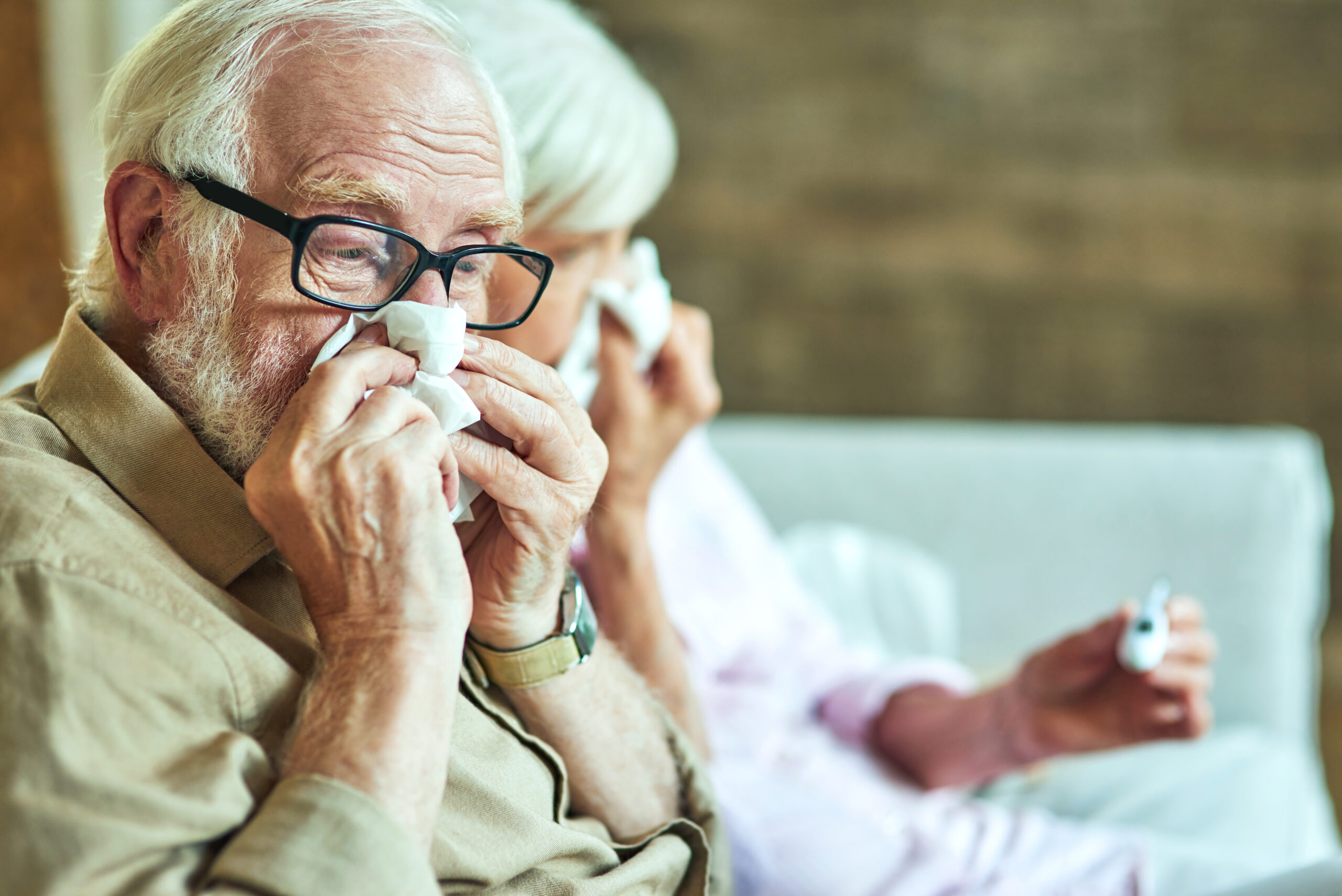

Allergies can develop at any age, even in the elderly. Usually in its early stages, people suddenly start to suffer from hay fever, food allergies or allergies to medicines that did not cause them problems before. Even the treatment of allergies in the elderly is not easy, and must take into account their other diagnoses.
The number of allergies has been increasing enormously in recent decades, and even severe allergy combinations are emerging. They affect all ages, but a new phenomenon is the outbreak of allergies in the elderly. “A stronger allergic reaction tends to occur especially in people who are overweight or obese. Seniors, for example, start suffering from hay fever, shortness of breath, tearing and conjunctivitis in the spring months,” Miriam Kvostková, M.D. describes the most common symptoms in the elderly. Pollen season is in full swing, allergy sufferers are on the lookout for the second month. Climate change is to blame, with warmer temperatures, and therefore increased allergens in the air, occurring earlier than in the past. Right now, trees are in bloom, with herbs joining in in April and grasses right after. Not only is the allergy season coming earlier, the age structure of allergy sufferers is also changing
. „Kým v minulosti alergiou trpeli najmä deti, resp. prejavila sa v detskom veku, dnes už ani prepuknutie alergie u starších ľudí nie je výnimka. Prevalencia alergických ochorení v seniorskom veku je okolo 5 %. Alergické ochorenia vo vyššom veku pritom nepostihujú iba dýchacie cesty, prejavujú sa aj na koži a okrem peľových alergií sú bežné aj liekové alergie a alergické reakcie na bodnutie hmyzu,“ the expert describes today’s reality. Manifestations of allergies in seniors can be diverse. Depending on the type of allergy and the type of allergen that triggers it, the organ or several organs affected, they are usually significantly modified by the presence of other diseases and medications that the patient is taking for other reasons.
“Respiratory allergy is manifested mainly by watery nasal discharge, sneezing, itching of the nasopharyngeal mucosa, nasal congestion, headache, difficulty breathing especially when exhaling, wheezing when breathing, chest tightness or coughing. Allergic manifestations can also affect the eyes, and then there is tearing, watery discharge from the conjunctiva, a cutting sensation, itchy eyes or light-headedness,” says MUDr. Kvostková . „U seniorov sa môžu vyskytnúť aj novovzniknuté alergie či už na potraviny, ale tiež na lieky, ktoré seniorom predtým problém nerobili. Dôvod? S vekom sa mení aj imunitný systém,“ added the expert. Crampy abdominal pain, “twisting” in the abdomen, diarrhea, nausea or vomiting are typical for the digestive tract. On the skin, there are eruptions, urticaria, swelling and itching of the skin. Itching is one of the characteristic symptoms of allergy, caused by the substance histamine, which is released in the body during an allergic reaction. But how can we tell whether it is a cold, a common cold or an allergy? “Suspicion of an allergy arises if certain symptoms recur in the same circumstances, for example, a cold repeatedly appears in the pollen season, breathing difficulties are linked to the same place or room furnishings, digestive or skin symptoms are noticed by the patient after eating specific foods,” explains the primary physician of the Handlová hospital. Allergies, of course, also affect the chronic diseases of the elderly, even bronchial asthma can appear. “In the case of seniors who suffer from several diagnoses, it is also necessary to consider the appropriate combination of medications, because, for example, diabetes can worsen when treated with corticosteroids,” adds MUDr. Kvostková.
